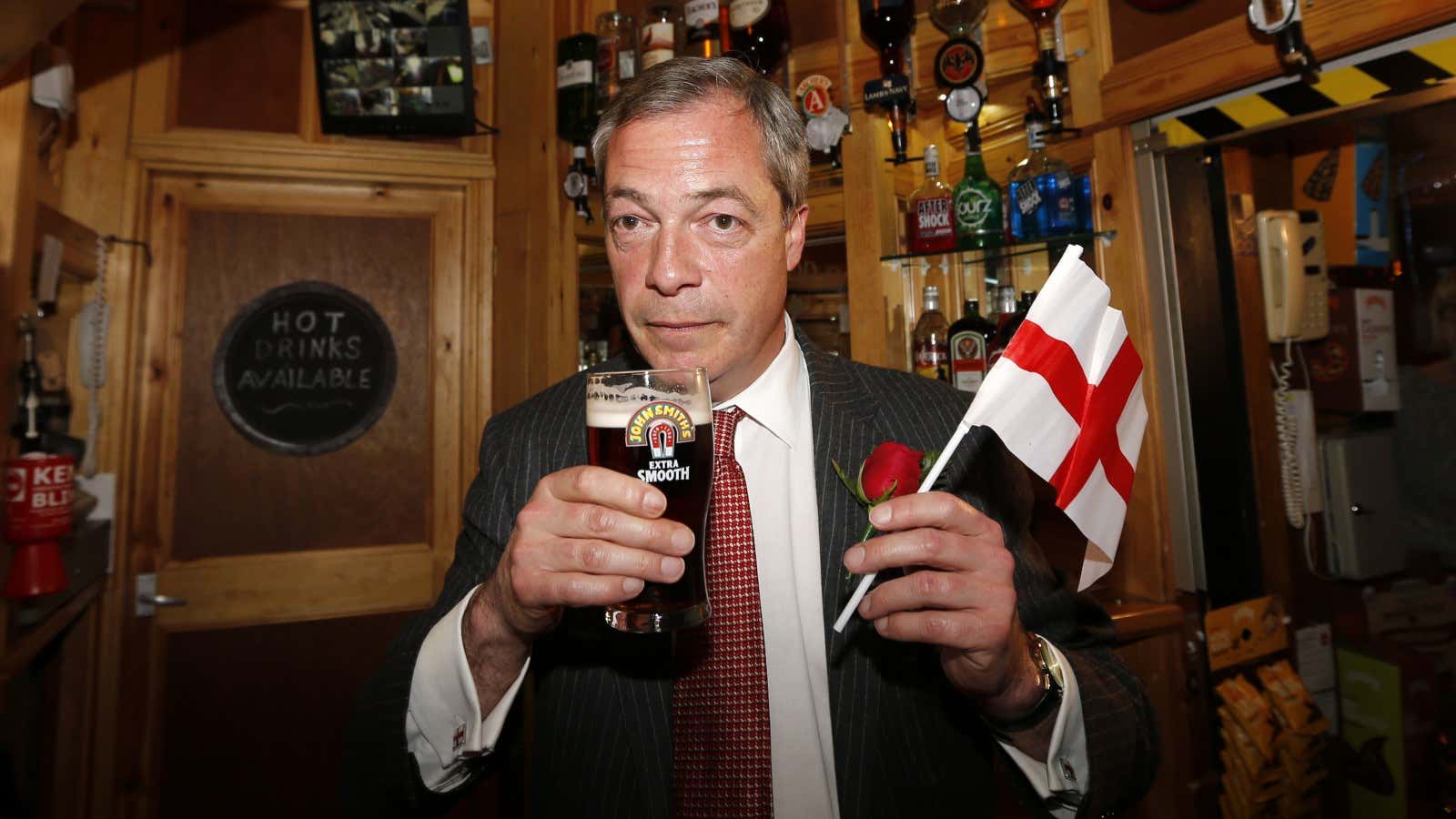Over the past year the rise of the populist right-wing UK Independence Party has been charted by a media at first incredulous, and then accepting of the phenomenon. Incredulous, because UKIP isn’t terribly new (it was founded in 1993 and Nigel Farage first became leader in 2006), has always been plagued by scandal, and for a long time was regarded as something of a joke.
Its recent popularity has been fuelled by—and is fuelling—anti-immigration sentiment in parts of England. Defections to UKIP by two members of parliament from the ruling Conservative party (leading to local elections that the UKIP candidates (paywall) won) underscored its rise.
Polls have given UKIP around 15% of the vote for months, which could translate into 25 or 30 seats in parliament. One poll back in October predicted the party, which wants the UK to exit the European Union, could win 128 seats.
Now, with the general election just one week away, it could be a very different story. Nate Silver, the US statistician with an uncanny knack for correctly calling baseball games and American elections, crunched the numbers and said UKIP will likely win one seat. That’s right. One.
So what happened?
- The Conservatives realized how much danger they are in. In the British first-past-the-post electoral system, winning seats matters more than total votes cast. If right-leaning voters opt for UKIP, that could split the rightist vote, allowing Labour or another party to win the seat. So the Tories went into overdrive. David Cameron all but begged voters to “come back home” to the party he leads. He also decided to play UKIP at its own game, and promised a referendum on whether to stay in the EU.
- UKIP revealed itself to be a one-trick pony. The party has always talked about leaving the EU, and about what it sees as the dangers of immigration. But during a general election, voters expect party manifestos to spell out plans for things like the economy. Meanwhile televised debates put Farage on the spot about how he’ll manage an exit from the EU financially.
- Endless scandals finally damaged UKIP’s reputation. People standing on UKIP tickets were accused of fiddling their expenses, racism and homophobia. But egregious behavior by UKIP candidates didn’t seem to put voters off. Eventually, though, it stuck.
- Other parties gained traction. UKIP’s stronghold is in the economically- depressed south and east of England. However, the rise of the Scottish National Party may have had an effect on tactically-minded voters south of the border, making them less likely to vote for a fringe party and fragment the vote still further. Polling expert Joe Twyman of YouGov said UKIP voters were always the most likely to “fall back” to supporting the larger parties when it came close to the crunch.
With all that said, some pollsters still see UKIP winning 30 seats. But the UK’s winner-takes-all electoral system means it wouldn’t actually take a big shift in voting intention for those 30 seats to turn into zero. And coming second in a whole bunch of races won’t get you one jot of power in government.
